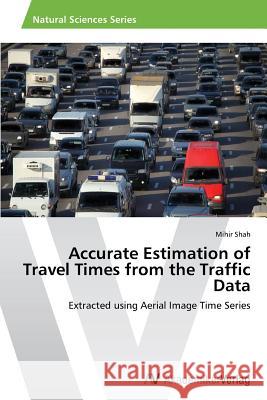Accurate Estimation of Travel Times from the Traffic Data » książka
Accurate Estimation of Travel Times from the Traffic Data
ISBN-13: 9783639635317 / Angielski / Miękka / 2014 / 88 str.
The ground stationary measurement devices are barely able to handle the daily traffic volumes and thus there is a high chance they could fail in situations arising from catastrophes or traffic disasters. Therefore, a real-time airborne monitoring system for such unforeseen circumstances was developed in the last years at the German Aerospace Center (DLR). This system has the capacity to estimate road traffic information such as vehicle positions and vehicle velocities by tracking through image sequences. This book focuses on developing a robust and feasible algorithm for automatic estimation of travel times on a motorway from the extracted traffic data using aerial image sequences. The used aerial image time series were captured on the motorways of Cologne and Munich by the airborne monitoring system. The approach for the calculation of travel times is based on the identification of traffic state. For the validation of proposed methods, results are also compared with the manual deductions of ground stationary infrastructure as well as with the times recorded through the ground run campaign along a 16 km motorway segment of Munich by an ADAC reference vehicle. The conclusion and shortcomings of the approach are discussed at the end.
The ground stationary measurement devices are barely able to handle the daily traffic volumes and thus there is a high chance they could fail in situations arising from catastrophes or traffic disasters. Therefore, a real-time airborne monitoring system for such unforeseen circumstances was developed in the last years at the German Aerospace Center (DLR). This system has the capacity to estimate road traffic information such as vehicle positions and vehicle velocities by tracking through image sequences. This book focuses on developing a robust and feasible algorithm for automatic estimation of travel times on a motorway from the extracted traffic data using aerial image sequences. The used aerial image time series were captured on the motorways of Cologne and Munich by the airborne monitoring system. The approach for the calculation of travel times is based on the identification of traffic state. For the validation of proposed methods, results are also compared with the manual deductions of ground stationary infrastructure as well as with the times recorded through the ground run campaign along a 16 km motorway segment of Munich by an ADAC reference vehicle. The conclusion and shortcomings of the approach are discussed at the end.











